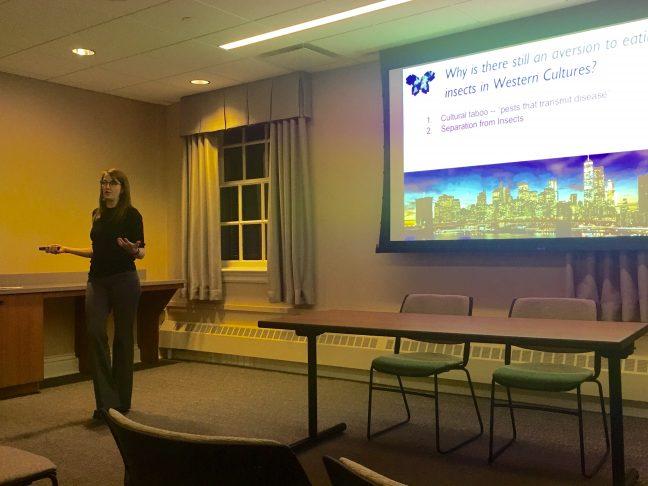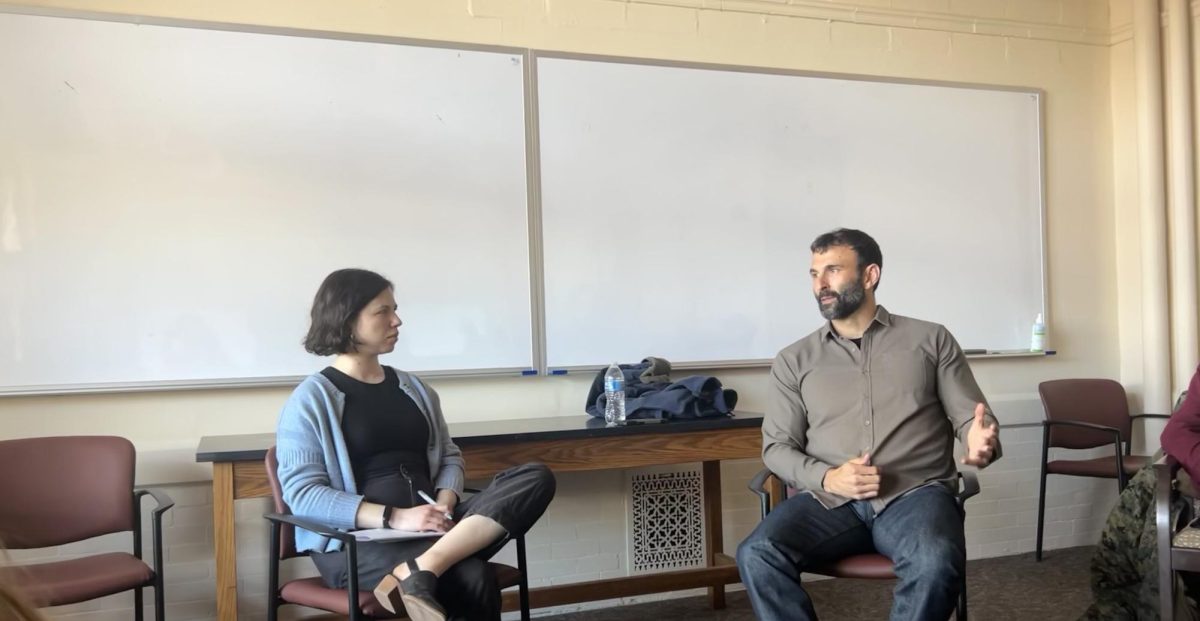Crickets and other edible insects are the pathway to an increased economy, a healthy environment and sustainable agriculture, PhD student Valerie Stull said.
Wisconsin Union Directorate Cuisine hosted Stull to discuss how crickets can be effective in cultivating a better environment for the U.S.
Stull is the co-leader of the Mission to Improve Global Health Through Insects, where they believe insects are one of the best practices for sustainable food sourcing. Climate change, agriculture and human health are all affected positively by insect consumption, Stull said.
Climate change is the biggest health threat and will effect food supply and security and agriculture negatively, based on the world’s current climatic activities, Stull said. In order to feed the estimated 9.7 billion people by 2050, the world will need to produce 60 percent more weight in agriculture than produced in 2005.
“[The human race] has to think about the processes and the management of our agriculture,” Stull said.
UW economics professor discusses future of health insurance reform
Stull believes entomophagy, the act of eating insects, is a viable means of combatting hunger, while uncommon in the U.S., 2 billion people regularly eat insects in over 130 nations. Insects can also provide an important income.
The equivalent of $39 to 59 million are raised in insects in South Africa alone, Stull said. Thailand, for example, also has an increasing entomophagy culture with about 20,000 small cricket farms.
Stull believes the U.S. hasn’t adopted insect-eating regularly yet in part of a “fear factor.” From a historical perspective, Stull said Europeans tended to favor domesticated foods over primitive ones, and insects were categorized as primitive foods.
“Insects are often preferable over meat. And it’s not just poverty, that’s not the reason people eat insects,” Stull said.
Stull said many people associate eating insects as a means of last resort to succumb starvation. But, this idea is a “cultural taboo.”
UW students aid scientists after Hurricane Harvey causes mosquito boom
Insects can often be found in abundance during the right harvesting season. She said insects are ubiquitous across the globe and because of that, there are no hunting regulations on insects.
But hunting insects can be problematic. Stull said some people have cut down trees in order to access insects, and this creates deforestation.
Moreover, Stull said when too many insects are harvested, it will upset their natural ecosystem and the species who live among them.
New research at UW indicates more ways to understand diseases in nervous system
But, there are more benefits to consuming insects, especially with insect agriculture, Stull said. Harvesting increases an all-year access and ensures food safety.
Insects are low-tech and require low-cost mechanisms. Because insects are ectothermic, they don’t experience pain when being put to death like other animals. Therefore, Stull said it’s a more humane process.
“Insects are nutrient dense and widely available,” Stull said.
Stull said she believes the U.S. can import a cricket, or insect culture by erasing taboos and making insectivores part of the culture.
Crickets are nutrient-dense foods and could create a better economy and agriculture for the United States, Stull concluded.





















